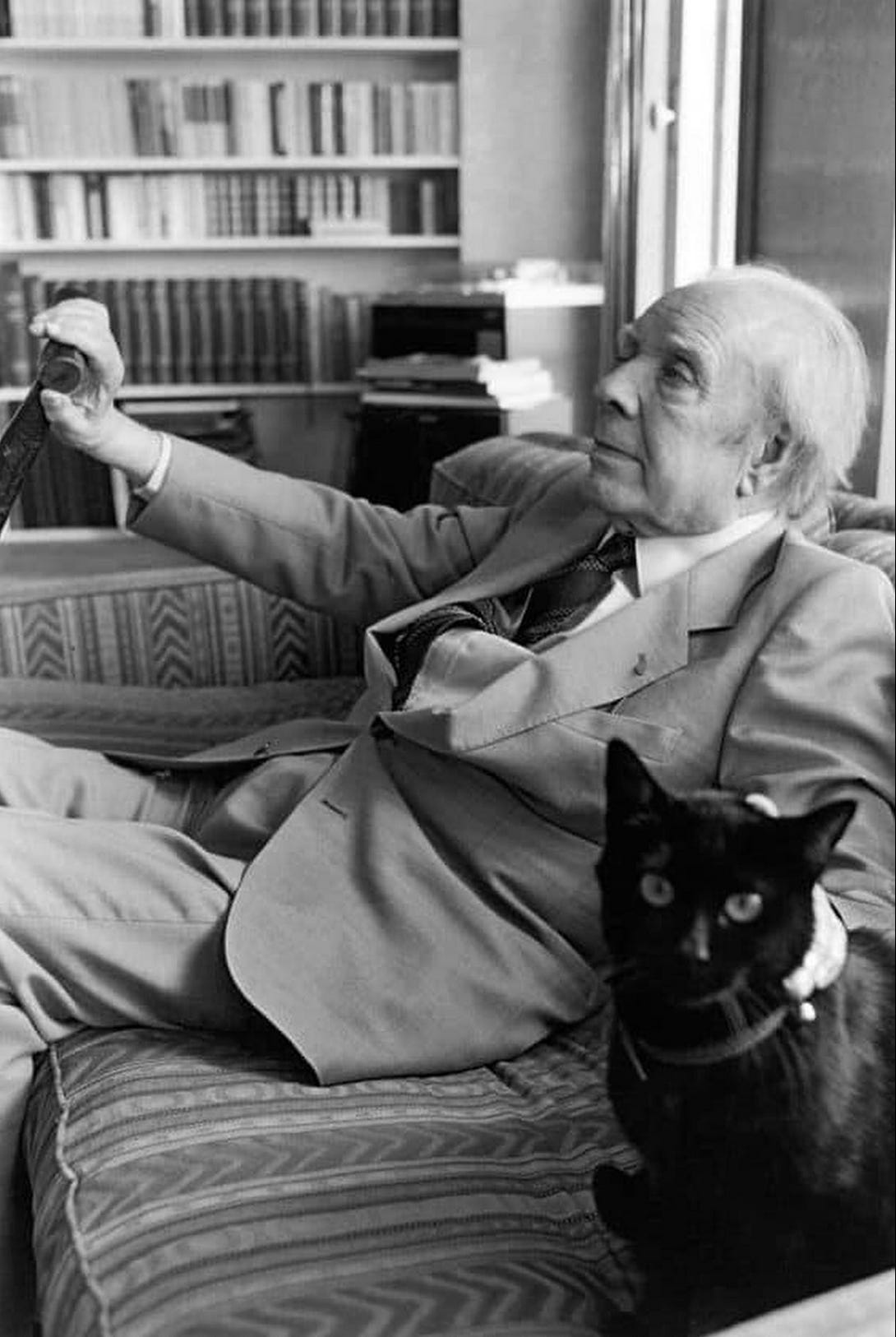The Argentinian author Jorge Louis Borges once observed that he could not sleep in a room without books. As he put it: “I am not sure I exist, actually. I am all the writers I have read.” (…) “I cannot sleep unless I am surrounded by books.”
His advice for readers was simple: “I would advise them to read a lot, and not to get intimidated by writers’ reputations, to continue to look for personal happiness, personal enjoyment. It is the only way to read.”
In Borges’ characteristically gentle way, he also urged people to read books they actually enjoyed, instead of feeling obliged to read something they thought was tedious. He encouraged people to stop reading something if they didn’t like it, saying, “If a book is tedious to you, don’t read it. That book was not written for you.”
Against the idea that reading should be a chore, Borges constantly stressed the idea that “reading should be a form of happiness.” Instead of feeling guilty about what you haven’t read, he advised that readers enjoy reading exactly as they pleased. As he put it, “I believe that the phrase ‘obligatory reading’ is a contradiction in terms; reading should not be obligatory. Should we ever speak of obligatory pleasure.”
In this sense, Borges believed that reading was an even more crucial activity than writing. He likened the process of reading to traveling or falling in love. And like love, one has to rekindle it over and over again. As he put it, “It is re-reading, not reading, that counts”.
But perhaps Borges’ most important encouragement was to remind the reader that there is no “right” way to read a book. In this, he sought to empower the reader to make their own connections and form their own thoughts. He characterized this as a process by which the reader could “enrich” the text. In his words:
“I think that the reader should enrich what he is reading. He should misunderstand the text; he should change it into something else.”
It’s a simple but profound idea. The author and the reader exist in a mutually empowering relationship to each other. When we read, we bring something to the text, and in so doing transform it. This means that in reading we are not just passive consumer, but an active participant in a literary exchange that has the power to change both us and the text. It’s a powerful reminder that we read to feel more alive and less alone. But above all that the act of reading should not be a self-imposed burden, but an opportunity for discovery and reflection.
In this Borges is the most democratic of writers. He encourages us to to read freely, and with abandon. Above all he urges us to feel empowered in our choice of reading, and to relish the pleasure of the text. It is a beautiful reminder that ultimately we read for ourselves, and not for others.
Julian
Thank you for reading my newsletter. If you’d like to support my work, please consider becoming a paying subscriber. Thank you so much.





Apologies! I am absolutely mortified that the email said "Jose Borges" instead of Jorge Luis Borges. It's an unforgivable slip, and -full disclosure- it happened because I had been writing about José Saramago (the Portuguese author), and somehow it created a Freudian slip of sorts. I'm very sorry, and this should be a reminder that I should not write these things past midnight.
Please forgive the foolish mistake. I promise to do better.
Hope you still enjoyed the post.
Julian
I am reminded of the quote I used to have up above my bookshelf in college, I believe from an essay in the New York Review of Books, from Italo Calvino who I always associate with Borges and Lem:
"All that can be done is for each of us to invent our own ideal library of our classics; and I would say that one half of it would consist of books we have read and that have meant something for us and the other half of books which we intend to read and which we suppose might mean something to us. We should also leave a section of empty spaces for surprises and chance discoveries."